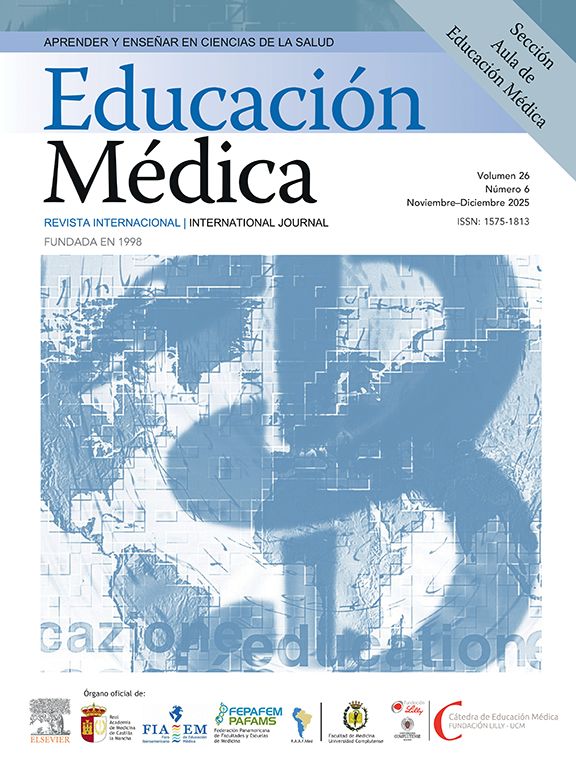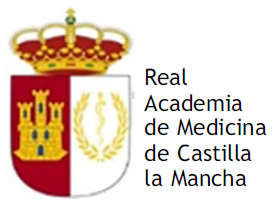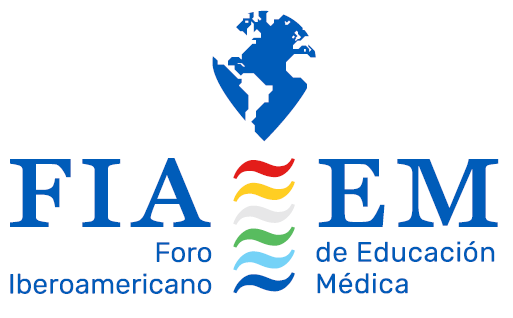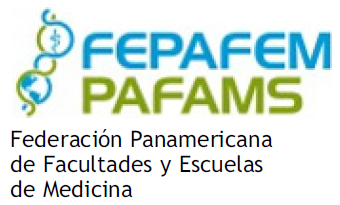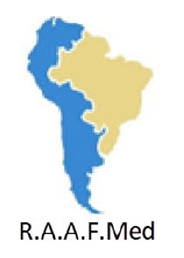Pedagogical workshop planning is challenging especially when we aim to promote a reflective practice of the tutees. This practice has been widely discussed in the literature without a real consensus. Some authors reported oral exercises or anecdotes, other described writings or even storytelling. The aim of the authors was to describe the different steps performed by the tutors and to assess the tutees’ satisfaction.
Material and methodsThis was a pilot study dealing with the use of the prospective strategy principles in order to plan a pedagogical workshop. Included participants were early academic teacher trainees.
ResultsThe authors illustrated how they planned a pedagogical workshop using the prospective strategy and highlighted the satisfaction of the tutees.
ConclusionProspective strategy is mainly used in economic field in order to change the future of the companies by acting on different intervening factors. Associating prospective strategy to pedagogical principles hasn’t been reported in the medical literature and seems to be available in order to induce reflective practice.
La planificación del taller pedagógico es un desafío, especialmente cuando nuestro objetivo es promover una práctica reflexiva de los alumnos. Esta práctica ha sido ampliamente discutida en la literatura sin un consenso real. Algunos autores informaron ejercicios orales o anécdotas, otros escritos descritos o incluso narraciones. El objetivo de los autores fue describir los diferentes pasos realizados por los tutores y evaluar la satisfacción de los alumnos.
Material y métodosEste fue un estudio piloto que trató sobre el uso de los principios de la estrategia prospectiva para planificar un taller pedagógico. Los participantes incluidos fueron los primeros aprendices de docentes académicos.
ResultadosLos autores ilustraron cómo planearon un taller pedagógico utilizando la estrategia prospectiva y destacaron la satisfacción de los alumnos.
ConclusiónLa estrategia prospectiva se utiliza principalmente en el campo económico para cambiar el futuro de las empresas actuando sobre diferentes factores intermedios. Asociar la estrategia prospectiva a los principios pedagógicos no se ha informado en la literatura médica y parece estar disponible para inducir la práctica reflexiva.
The need for postgraduate training has been reported in many medical specialties including psychiatric medicine, geriatric medicine or surgery and other fields including nurse education or dentistry. This need is explained by the necessity of achieving and maintaining mastery in many competencies.1–4 Diverse pedagogical tools, including lectures, debriefing sessions, reflective writing exercises, simulation/role-play, pedagogical workshops have been described in these training with emphasis on workshops. Tutoring pedagogical workshop in academic medicine aims to promote effective reflective practice of the postgraduate teachers and improve their teaching competencies. Reflective practice is mandatory to make the tutees aware of the workshop's pedagogical goals and of their key-role in the physician's education. Inducing reflective practice was assessed in different ways including the use of oral, written exercises or even anecdotes.5–7 The authors used a technique mainly reported in the management field in order to promote a reflective skill during a pedagogical workshop. This technique consisted in the prospective strategy.8–10 Strategic planning is based on many attitudes: reactive, proactive and prospective. Reactive attitude consists in reacting rapidly when facing new intervening factors. Proactive attitude consists in predicting the future based on different factors that are present. Prospective attitude consists in modifying different factors in order to change the future. Prospective strategy was mainly used in the management and the industrial fields in order to improve the future of the companies by acting on different factors.8 The research questions guiding this study were as follow:
- -
Is-it possible to use prospective strategy principles in order to plan a pedagogical workshop and to empower the reflective attitude of the trainees?
- -
Will the participants be satisfied by the process used?
Type of study: this was an exploratory case study about the use of prospective strategy principles in order to plan a pedagogical workshop.
Geographical location: this study was conducted in Tunisia (North Africa)
Pedagogical intervention: prospective strategy is based on different steps:
- -
Common representation of the system: the participants try to define the terminologies and the concepts to discuss.
- -
Tracking the process in progress: this step consists in the discussion of the present and the past situation of the company to improve.
- -
Hypotheses’ definition: this step consists in the discussion of the possible hypotheses concerning the future of the company.
- -
Hypotheses relational matrix: the participants perform a matrix highlighting the different relationships between the hypotheses. Some hypotheses can promote the occurrence of other hypotheses, inhibit each other or have no interferences.
- -
Aggregation of the hypotheses into scenarios: graphic representation of the relationships between the hypotheses reveals some “motor” hypotheses. These hypotheses are those that present the highest links with other hypotheses. The motor hypotheses are used to start a scenario.
- -
Strategic construction: when using the scenarios, the participants try to discuss the different factors that induced the situation described or limited it in order to improve some factors and to inhibit others.8 The different steps of the prospective strategy are represented in Fig. 1.
Population: the study included novice teachers that started academic teaching in the medical Faculty.
Study variables: the major outcome consisted in the possibility of planning an effective pedagogical workshop based on the prospective strategy principles. The different steps of the prospective strategy were employed to plan a pedagogical workshop. Minor outcome consisted in the tutee's satisfaction. A satisfaction questionnaire containing 5 likert-based questions was sent by e-mail to the different participants.
Bibliographic research: Pubmed and Web of science databases were used. According to the research questions, the PICOS (Population, Intervention, Comparison, Outcome, Study) items used consisted in “planification of pedagogical workshop for medical tutors using prospective strategy”.
Consent: ethical approval for the study was not required. Participants were made aware of the purpose of the study, the anonymous nature of the purpose, the anonymous nature of the dataset generated and the option to not respond if they so wished. This information served as the basis for an informed consent from each respondent.
ResultsPlanning of the pedagogical workshop: the pedagogical workshop was planned by the different tutors and was centered on the problematic of the medical education.
The pedagogical goals of the workshop consisted in allowing the tutees to situate a pedagogical model in use in medical faculty based on the relevance of internal and external factors and to highlight the conceptual backgrounds when using different pedagogical models and methods and techniques of learning.
This kind of workshop was considered as challenging because it was considered too theoretical and too disconnected from novice academic teachers real life. This challenge made the authors look for the use of prospective strategy to motivate the tutees.
The scenario of the workshop associated five-minute lectures, team-discussion sessions (5 teams including 5 teachers) and plenary sessions to discuss the strategies highlighted by the different peers. The scenarization of the workshop is represented in Table 1.
Pedagogical scenario.
| Sequence goals | Content | Resources and pedagogical methods |
|---|---|---|
| -Describe the different elements intervening in the training loop | -Brainstorming: ruling out the stereotypes-The competency calendar of the medical doctor. | - Powerpoint presentation-Team learning-Whiteboard/flipshart |
| -Discuss the different factors interfering with the medical training | -Scenarios to discuss | -Scenarios-Team learning-Powerpoint presentation |
| -Understand the main steps of the problematic of medical training | -Scheme of the different steps of the problematic | -Discussion-Whiteboard |
The tutors met 3 times in order to discuss the hypotheses concerning the future of the medical training and assessed 9 possible hypotheses:
H1 – Less competent doctors
H2 – Increase of the number of doctors that go to other countries or leave the public practice to the private one
H3 – A few doctors to prepare academic exams
H4 – Employment of teachers that reach high university grades with less competencies
H5 – Public health problems more centered on personalized medicine
H6 – More financial support of the private sector in comparison to the public academic one
H7 – Less competent students in the first and second cycles of the medical education
H8 – Burn out of the medical teachers
H9 – Inadequate resources and pedagogical techniques in relation to the number of academic teachers and students.
A relational matrix was constructed and highlighted 2 ‘motor’ hypotheses allowing the construction of 2 scenarios.
The relational matrix and the scheme of the different relations between hypotheses is represented in Figure 2.
The 2 scenarios constructed were as follow:
Scenario 1:
In Pamponesia, a country within economic crisis, the material conditions of the doctors decrease leading to the departure of many doctors to other countries. Facing the lack of doctors in different specialties, many public health problems were exacerbating inducing an increase of the mortality rate. The rare doctors remained in the country in the public academic sector were exhausted with the amount of work in the hospital and the faculty. This situation increased the demotivation of the doctors and their wish to leave the country.
Scenario 2:
The state of Turbustan decided to disengage from the public academic health sector and to investigate into the private one with the help of public banks. The encouragement of the state to the private practice encouraged many doctors involved in the academic sector with professor or associate professor grades to leave. On the other hand, the students within medical faculties reported a bad tutoring and training in the faculty and the hospitals with demotivated and disengaged teachers. The deans of the different faculties of medicine reported a decrease in the number of candidates subscribed in the different entry exams to the academic career.
These 2 scenarios were discussed within teams and within plenary sessions.
- -
Satisfaction questionnaire: Fourteen teachers answered the satisfaction questionnaire. All the teachers totally agreed with the fact that the workshop was well balanced with theoretical elements, lectures and scenario-based applications. Thirteen teachers (93%) estimated that the scenarios helped the reflective practice. All the teachers (100%) were satisfied and motivated by the scenarios used. Thirteen teachers (93%) were totally satisfied with the planning of the workshop and one teacher was moderately convinced. No teacher had free suggestions to formulate.
In this study, our first purpose was to explore the use of the prospective strategy as a reflective tool in a pedagogical workshop for novice teachers. The prospective strategy was mainly used in industry and economic fields. Some reports concerned medical fields including hospital management but no report concerned the pedagogy field.10 This strategy seems relevant in a workshop dealing with the problematic of medical education because of the difficulty of the theme, which seems too theoretical to many academic teachers especially in their early pedagogical career. We highlighted the possibility of producing scenarios that could be used in order to induce thinking, exploration, inquiry, active learning and reasoning of the tutees. The inclusion of the reflection practice was encouraged by many organizations.5,10–13 The reflective practice was reported to improve clinical reasoning and to promote professionalism.7 It is important to encourage this practice but it is also more important to reach a consensual definition of the ‘reflective practice’. It has to be defined as a particular skill or even a competency associated to relevant educational outcome. Mezirow defined the reflective practice as a process inducing a state of critical awareness.14 Effective reflection consists in a questioning of own practice, actions, beliefs and values reaching a ‘triple loop’ approach. Single loop approach is defined by seeking an alternate plan for future similar experiences and double loop approach is defined by the identification of the reasons of an outcome in order to assess conceptual framework.15 A ‘triple loop’ approach goes beyond the latter approaches. Many authors wondered about the methods to use in order to empower this approach including oral or written exercises or storytelling without reaching an effective method.5,6,16 The principles of prospective strategy seemed to fit with the reflective practice necessities. Aronson L reported twelve tips for teaching reflection and put emphasis on the necessity of making this practice more academic with the use of appropriate instructional methods far away from anecdotes.17 She reported that the reflective practice improves professionalism when the trainees understand that their professional practice or their pedagogical approach aren’t just recipes used mindlessly.17 Introducing reflective practice into a pedagogical workshop using prospective strategy hasn’t been reported. A pedagogical workshop is defined as a meeting favoring exchange between tutors and tutees in a collaborative climate in order to enable the acquisition of knowledge, abilities and attitudes. Workshops can be categorized into production workshops or training workshops. In production workshops, experts are assembled in order to accomplish a collective task and to solve a problem. They result in a collaborative procedure with the help of tutors. Training workshops consist in learning workshops that target to make the tutees gain new competencies and exploratory workshops put emphasis on a reflective approach.18 The workshop that the authors tutored was an exploratory workshop, whose objective was to make the tutees explore the challenges of the medical education. The scenarization of a workshop is based on the pedagogical goals to reach. The framework of a pedagogical workshop is based on 3 key elements: the onset, the course and the end. During the onset, the tutors have to illustrate its pertinence according to the trainees’ reality, introducing the tutors, listing the major goals and start a reflective attitude. The course of the workshop necessitates planning each learning section to the trainees and encouraging them to be involved in the different exercises within a warm atmosphere. The end of the workshop should put emphasis on the key concepts and their influence on the trainees practice and real life.18 The topic of the workshop tutored by the authors was the problematic of the medical education, which involves extrinsic factors consisting in the major public health problems, the health state strategy, the social insurance system and intrinsic factors consisting in the institution choices, the teachers’ behaviors and continuing training, the students and the material resources. These different factors interact and regulate the competency curriculum of the family doctors. The identification of the different factors that could influence the medical education helped the teachers to be aware of their roles and attitudes within the training loop. The prospective strategy helped the different tutees to adopt a reflective and dynamic attitude. This attitude may prevent them from the distance issue in physician education. In fact, students and physicians consider graduate education too distanced and disconnected from the needs of future professionals and from society.19,20 Using the prospective strategy helped the tutees to identify their role in the physician's education. Our second purpose was to assess the satisfaction of the participants and we highlighted that the majority of the academic teachers were satisfied with the general process and estimated that the scenarios used enhanced their reflective practice.
The major limitations of this study consisted in the fact that the trainees didn’t practice the prospective strategy but they analyzed scenarios that the tutors performed using prospective principles. Secondly, there was no assessment of the deeper learning. This may be explained by the topic of the workshop, which was the problematic of the medical education. This topic didn’t concern deep learning and tutees were asked to be aware of the different elements interfering with the medical education on which they can act during their career. Future lines of study may focus on the impact of using prospective strategy in different pedagogical themes.
In conclusion, the use of the prospective strategy principles may empower the reflective practice, which is mandatory in academic medical field. This was a pilot study that reflects the possibility of adapting the prospective strategy steps to pedagogical issues.
Conflict of interestThe authors declare that they have no conflict of interest.



